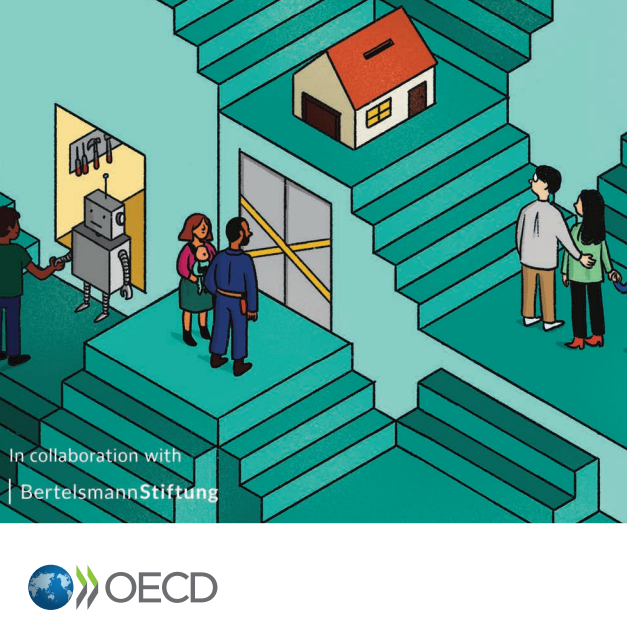
OECD Report: Is the German Middle Class Crumbling? Risks and Opportunities
A new report by the OECD and the Bertelsmann Foundation examines the state of the middle class in Germany, and finds that the middle class is significantly smaller today than it was in the mid-1990s. Valentina Consiglio, co-author of the study and a PhD student here at the Cluster, will present the study to us in more detail on December 22, 2021. More information about it and a brief summary of the findings is available here.
A new report by the OECD and the Bertelsmann Foundation examines the state of the middle class in Germany. A member of the middle class is defined as a single person with a monthly income of EUR 1,500 to 4,000 (75-200% of the median). The study’s main finding: The middle class in Germany is significantly smaller today than it was in the mid-1990s. Particularly affected by this development is the lower middle class (75-100% of the median). In terms of the size of the middle class, Germany is positioned in the middle in an OECD comparison with 64% of the total population in 2018, but the middle class has shrunk faster since the 1990s than in most other OECD countries. A comparison between generations illustrates this as well: For example, the size of the middle class in Germany has decreased from generation to generation since the baby boomers. In their 20s and 30s, 71% of baby boomers belonged to the middle class, but only 61% of millennials do. Young people are thus disproportionately affected by the decline of the middle class.
The authors of the study also conclude that the middle class is also being affected by the polarization of the German labor market. For example, there was a relative decline in occupations with a medium level of competence, while there was a relative expansion in occupations with high and low levels of competence. By 2030, even greater polarization is expected.
However, there is also good news: median real income has grown again since 2015 after a prolonged period of stagnation.
Curious now? Well, you're lucky! Valentina Consiglio, who has recently joined Thomas Kurer's cluster research group as a doctoral student, is a co-author of the study and will present the highlights to us in a Special Event on December 22, 2021 from 9:30 to 11:00 am.
